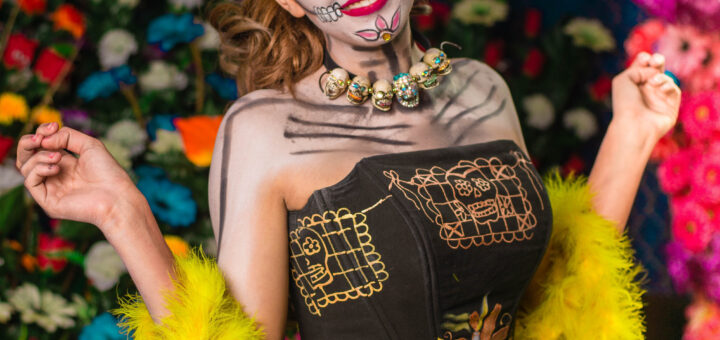What is cultural appropriation anyway?

By Karina Zapata, Publishing Editor
Ah yes, Halloween. It’s officially that time of year when everyone talks about cultural appropriation — a complex term that’s easy to understand in retrospect, but is initially more fuzzy than it may seem. While Halloween is going to look a little different this year thanks to COVID-19, there’s no doubt that you’ll probably see this term floating around the internet throughout the next few weeks.
Let’s learn more about cultural appropriation and why it matters.
What exactly is it?
Cultural appropriation is defined as “the adoption or co-opting, usually without acknowledgment, of cultural identity markers associated with or originating in minority communities by people or communities with a relatively privileged status,” according to dictionary.com
Essentially, cultural appropriation is when a person takes aspects of another person’s culture — such as an outfit, accessory or decoration — and uses it as their own, disregarding the significance of the cultural item. This is especially prevalent during Halloween as people try to find costumes, but it’s important to note that it doesn’t only happen during Halloween.
We all remember the Trudeau blackface scandal that hit international headlines last year (In case you missed it, there were old photos released of the Prime Minister of Canada wearing makeup to darken his skin as a costume on at least three different occasions.)
This is a prime example of cultural appropriation — a white man using marginalized folks’ features as a costume, even when those exact features play a major role in the discrimination against them.
Why does it matter?
While it’s easy to understand that this is offensive, a flaw with cultural appropriation is that it doesn’t seem very harmful from afar. But, just like the term itself, there is much complexity surrounding how exactly this harms BIPOC (Black, Indigenous, people of colour).
To truly understand this issue, we must turn to Canada’s history of racism. Black people were enslaved and lynched, Japanese people were forced into internment camps and Indigenous people were (and still are) murdered, abused and forced to assimilate on their own land.
Let’s not forget about how this racism is alive and rampant today — just look at how this month, mobs violently attacked Mi’kmaq lobster facilities.
And that’s just the beginning.
If there is one thing that has been taken from BIPOC across Canada and many other parts of the world, it is their power. And for many marginalized people, their culture is what gives them strength.
So, if someone wears a Pocahontas costume (whose real name, by the way, was Matoaka — she was a Pamunkey tribe member and daughter of Chief Powhatan), they’re suggesting that these real, significant aspects of cultural identity and history no longer belong to the communities they’re from.
They’re turning these real, significant aspects of cultural identity and history into a mockery.
The good thing is that once educated, anyone who is guilty of this can put the work in to transition from cultural appropriation to respectful cultural appreciation.
What can you do?
While this is a long journey of understanding the role you play in oppressive systems, there are some things you can tackle first to introduce yourself to this anti-racism work.
Educate yourself
The first thing you can do to make this transition is to educate yourself on cultural appropriation and be mindful when shopping. It’s important to learn what cultural appropriation really is, how it can harm BIPOC, what it can look like and how you may have played a role in these racial hierarchy systems. It’s also important to be racially conscious when seeking out a costume and question whether an item could be representative of a culture. Luckily, we have Google, which can tell us whether an item is culturally significant or not.
Support small businesses run by BIPOC
This is a really easy way to put your money where your mouth is and have open conversations with people running these businesses. Plus, products created by small businesses are typically of great quality and made with much more love than products sold by corporations. If they note that purchasing their products for yourself is a form of cultural appreciation, you can support their business by buying something for a friend of that culture (or donating to a cause of their choice).
Don’t assume — have these conversations with BIPOC
While it may be intimidating, trust that BIPOC are experts of their own lived experience. There is no one better to tell you what is and isn’t harmful than people who are affected by all kinds of racism every day. Not only will you be able to understand their perspective more wholly, but these conversations are much more meaningful than threads you’ll read on Reddit. Just make sure to be respectful of their boundaries, and if they aren’t comfortable speaking about this, there is always someone else that will be.


